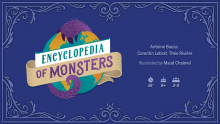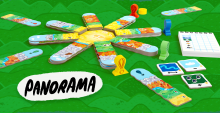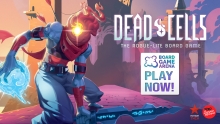2019: In Words and Numbers
Well, here we are: the 4th Scorpion Masqué Year-End Review (and the first to be translated into English!), in words, thoughts, and numbers!
 Year End Review?
Year End Review?
For newcomers, my name is Christian Lemay, and I founded Scorpion Masqué in 2006. Every year since 2016 I’ve put together a review of what we’ve been doing for the past 12 months, and also added my thoughts on the board game industry, the marketplace, and how it has evolved over the year. In addition to this, I also give some very juicy financial details. The thinking behind sharing this kind of information was inspired by Steve Jackson Games's Annual Stakeholder Report, as written up by their CEO, Phil Reed.
Scorpion Masqué is a board game publisher based in Montreal, Quebec. Our business consists of…
Choosing the games that we plan to publish.
Developing and improving them.
Giving them form (a title, illustrations, box dimensions…).
Having them made.
Promoting them to the general public and to find the best means of distribution for them worldwide.
Our company consists of 6 full-time employees: Christian Lemay (that’s me!), President-Founder and Grand Poobah; Manuel Sanchez, Creative Director and Project Manager; Hélène Vigneault, Head of Events, Marketing, and Logistics; Carl Brière, Sales Manager; Sébastien Bizos, Motion and Graphic Designer, and finally Matthew Legault, Playtest Coordinator and English-language Communications and Translation Officer. We also work with numerous freelancers; primarily game designers, illustrators, and demo staff for festivals and conventions where we come to meet you all.
The Numbers Game!
First of all, for those of you who may have seen (or may go see) last year’s numbers, they were way off. This is why it was so important for us to upgrade our accounting system this year — a subject I’ll go into in more detail later on. The annual sales figures for 2018 were actually $1,525,000 CAD ($1,170,000 USD). I had erroneously estimated $1,136,000 in December 2018 when putting together that year’s recap.
This year it gives me enormous pleasure to announce that we have passed the $2,500,000 CAD mark ($1,905,000 USD). This constitutes a 64% increase! Last year I wondered whether the hiring of Carl and Sébastien in May (which meant leaving the basement office of my house and renting office space; a not-insignificant expense) would pay for itself.
If our Google Sheet isn’t lying to me, we produced 375,000 games this year in addition to those being produced under license in other countries: Bluff Party in France, Monster Chase in Poland… I remember laughing at myself in 2007 when I had dared to consider the idea of producing and selling 20,000 games in a year!
Published Games
We published 4 new games this year. We should have made 5, but the illustrations for the last one came in too late, and, to be completely honest, I don’t know whether we would have been able to deliver the files to the printer in time for a 2019 release even if we had received the illustrations on the scheduled date.
Before I go into the details of the games, I should point out that most of the games we released this year were French-language (FR) only, with Laser Drive being the only game to have its English-language (EN) counterpart released at the same time as the FR version. All future publications will be scheduled so that the EN and FR versions are released simultaneously!
Stay Cool
We started the year with a bang with Stay Cool - The Multitasking Game, a game in which players are bombarded with questions from two ‘interrogators’, which they must answer either verbally or by writing the answer using letter dice… all simultaneously, and all while keeping their eye on a sand timer, which they have to flip at the right moment.
 As with Decrypto, Stay Cool was a risk. A gamble. I knew that it was a game that would provoke intense reactions, and that it brought a very unique experience to the table. But I was also worried that it would scare people; that they would say, “Ah no, that’s not for me, I am completely incapable of doing two things at the same time,” without even giving it a chance. Well, it turned out that people were willing to give it a chance after all: we quickly sold out all the stock we brought with us to the game festival in Cannes, France. The 7,000 copies of our first print-run sold through in less than 2 months, creating (for better or for worse) a long period of 2-3 months where the game was out of stock, until our second print-run of 10,000 copies arrived. There were stock issues before Christmas in France, while in Quebec, we will have to wait until January to receive a restock.
As with Decrypto, Stay Cool was a risk. A gamble. I knew that it was a game that would provoke intense reactions, and that it brought a very unique experience to the table. But I was also worried that it would scare people; that they would say, “Ah no, that’s not for me, I am completely incapable of doing two things at the same time,” without even giving it a chance. Well, it turned out that people were willing to give it a chance after all: we quickly sold out all the stock we brought with us to the game festival in Cannes, France. The 7,000 copies of our first print-run sold through in less than 2 months, creating (for better or for worse) a long period of 2-3 months where the game was out of stock, until our second print-run of 10,000 copies arrived. There were stock issues before Christmas in France, while in Quebec, we will have to wait until January to receive a restock.
Stay Cool proved to be an ENORMOUS and unexpected challenge to translate to English!! First of all we had to start from scratch to create the 500 questions on the Red Cards (written answers) because 3-or-4-letter words in French rarely, if ever, translate to the same thing in English, PLUS they have to be able to be written using the letters available on the dice… of which there are only 21 of the 26 letters of the alphabet! The English language has around 3 times more words than the French (it’s true; look it up), meaning that creating the questions for these words was far more difficult in English, as one question could lead to multiple possible answers. In addition to this, a significant number of the 1,000 questions on the Teal Cards had to be completely rewritten due to French cultural references, plays on words, or simply French-language elements that just didn’t translate directly to English. In fact, the arrival of Matthew into our midst, our first native English-speaker (!), was a direct result of how difficult it was to finish this project. Stay Cool was supposed to be on American and British game-store shelves in October, but in the end, that date instead marked the beginning of the game’s production run in China. The game is now slated to be released in March of 2020.
Despite its great qualities as a game, this translation issue somewhat cooled the enthusiasm of our foreign distributors, such as Happy Baobab, who were disappointed to discover that the game simply wouldn’t translate to Korean. We are happy to announce that there will be Spanish, Czech, and Italian versions of the game, while we are actively looking into the possibility of Russian and German editions.
This scenario has raised an interesting question: should we turn down good games in the future because of the difficulty (or impossibility!) of creating international editions, which would severely limit their economic viability? It’s certainly one to ponder.
L’Agent Jean

This game is based on a hugely popular French-language comic book series, which has sold 1 million copies in Quebec alone. This was our second foray into licensed titles, and I was once again reminded of the power of a strong license. In only 6 months we put 20,000 copies of Agent Jean into stores in Quebec alone (with a population of 7M French-speakers, that is a significant amount!). That quantity, especially in that timespan, would have been unthinkable with an unlicensed product. Publishers throughout the industry have also understood this phenomenon, and are publishing more and more licensed games; we need think no further than CMON or FFG for examples of this. The games creating the biggest buzz at GenCon 2019 all came from well-known universes, with the only possible exception being Ankh, Eric Lang’s latest, which is the last of an extremely popular trilogy (Blood Rage, Rising Sun…).
Decrypto: Laser Drive

Scorpion Masqué’s first ‘real’ expansion, Laser Drive, has been on the market for too brief a period for us to be able to fully evaluate its success. I am very curious to be able to see for myself the kind of impact an expansion can have, especially its ability to bring back to the forefront a game that has already been available for some time, and to what extent it can affect its sales!
I have the feeling that it’s fairly easy to have expansions to successful games talked about online, but reviewers and ‘influencers’ seem to have little interest in devoting the same kind of time and energy to doing videos for expansions as they do for ‘base’ games.
 Flash 8
Flash 8
It took me exactly 15 minutes to decide to publish this game; about the same amount of time as it takes to play a game of it! This was in March of 2017. So now you’re wondering why it took 30 months (that’s 2 and a half years) to stick a theme on a game whose mechanisms we hardly even had to tweak. And the answer is: well, just because. Just because a game CAN have any theme attached to it doesn’t mean that any arbitrarily-chosen theme will actually carry the game. Just because we had a practically-finished game with a different theme, all ready to go to the printer in 2018, with lots of cute little viruses brilliantly drawn by Mathieu Beaulieu, doesn’t mean that we would go ahead with that theme. The problem wasn’t in the execution, but in the theme itself, which we judged to be ‘meh’. Unfortunately, we were only able to come to this conclusion once the project was nearly finished.
Although we assumed it would be easy to export Flash 8, with its incredibly easy-to-explain mechanisms and lack of significant text to translate, many distributors were a bit put off by its mix of genres. When a game doesn’t fall into a neat little pigeonhole, it is harder to sell. Flash 8 is a sliding tile puzzle, that classic puzzle where you have to slide a piece into an empty space in an attempt to create an image or whatnot. The sort of game you play on your own. Flash 8 also fits into the conceptual space occupied by the Smart Games line. Is it a board game? A speed game? A party game? The answer is yes. Probably. To a certain extent. In the end, I fully expect Flash 8 to do just fine. It will sell well enough internationally (there are 4 translations currently underway), but where our expectations once might have been for a high-speed mega-highway… well let’s just say that we may need to dial them back a bit.
Highlights and Reflections
New Employee
The marketing campaign during the launch of the English-language version of Zombie Kidz: Evolution didn’t meet the heights of my expectations, and that really bugged me. I should have dealt with the communication aspect of this game’s launch better, and feel like I didn’t deliver the merchandise as well as I could have, or as well as the game deserved. My list of tasks and responsibilities seemed to get longer rather than shorter every day during January and February 2019, when this game was launching. I worked nearly every night, sometimes hiding from my family to be able to do it. So this situation, coupled with the frustrations of trying desperately to get the translation of Stay Cool finished, convinced me that we needed to hire someone if we wanted to have any  real chance of establishing a significant presence in the English-language market (Canada, the US, the UK, and Australia/NZ), and who knows, perhaps even internationally, on a larger scale than before. We did a good job with Decrypto, why not keep the positive momentum going? Matthew Legault joined our ranks at the end of August. He has a colossal task in front of him, and we will see what kind of impact he is able to make once Stay Cool finally releases in English in the Spring of 2020.
real chance of establishing a significant presence in the English-language market (Canada, the US, the UK, and Australia/NZ), and who knows, perhaps even internationally, on a larger scale than before. We did a good job with Decrypto, why not keep the positive momentum going? Matthew Legault joined our ranks at the end of August. He has a colossal task in front of him, and we will see what kind of impact he is able to make once Stay Cool finally releases in English in the Spring of 2020.
As I mentioned in an interview I did in Essen for Ludovox, the responsibility of the 4 first full-time employees at Scorpion Masqué was to take tasks out of the hands of the existing team members who could no longer execute them properly without putting in peril the essential strategic elements of the company.
Matthew is the first Scorpion whose presence primarily allows us to do more. We’ve never been very active in the English-language world, so it’s a big risk for us, and there is even a chance that his work will not move the needle enough to justify his cost. I have decided to take him on both because we have the means to make it work, and also because of the very real potential for significant growth. I’ve given myself until December 2021 (about 2 years) to see whether the gamble has paid off.
Stock Issues

But how many games do you print?! This question has become more and more critical as time goes by. Stock shortages for Zombie Kidz: Evolution, Monster Chase, and a couple of other French-langauge titles easily represents our greatest loss of earnings this past year. We’re talking about the loss of 5-figure profits…
That being said, the gap in our sales has widened. 7 or 8 years ago we knew that we could sell between 3,000 and 5,000 units of a game in the first months after its release. In the worst cases, if I was too enthusiastic about a game, I was stuck with 1,000 - 2,000 unsold units. These days, even if we sell nearly 40,000 units of Zombie Kidz: Evolution in the first year (which we did, in French alone), we could still have trouble selling 7,000-8,000 units of other titles. This means that doing a production run of 12,000 copies of a game because we think that it will be a huge success (which, ironically, would not have been enough to cover the demand for Zombie Kidz: Evolution!) could end up leaving us with thousands of unsold games on our store-room shelves! All we really have to answer the question of how many games to print is our little finger, licked, and stuck in the air.
 Accounting System
Accounting System
Thanks to the suggestion (insistence?) of Carl, our Sales Manager, we implemented our first accounting system in the summer of 2018; I’d been using Excel up until that point, and we really needed to move to the next level. Like, yesterday. Well, the experiment was a disaster, as the software we chose did not offer online support. I didn’t realize that that sort of thing could exist in 2019!!! We were reimbursed, and set ourselves up with a second system, which came online on February 14, 2019; 8 months after we’d planned. I can’t thank Carl enough for this initiative, we would never have been able to finish our fiscal year without it! The number of bills and invoices has exploded and we could easily have spent weeks wading around in adjustments, collections, credits… In addition to this, we can now track revenue and expenses in real-time, where in the past I was only able to look at the figures once or twice per year. Knowing our profits at any given moment means that I am able to make strategic decisions much more quickly. Like hiring a new team member for instance...
*Having just re-read this paragraph, I suspect that anyone who has managed any kind of serious enterprise must be judging me and having a good laugh at the way I handle things.
The Scorpion Effect
For the first time since 2006, I have felt what I call the ‘Scorpion Effect’. In the past Scorpion Masqué and I were one and the same; awards or recognition gained by one reflected directly upon the other. Now, I see the Scorpion Effect when people (gamers, game stores, reviewers, etc.) speak highly of Scorpion Masqué without knowing me personally. The brand has established itself and has untethered itself from me, its original mooring. This makes me very happy. :)
Games of the Year
Scorpion Masqué doesn’t have the monopoly on great games. Here are a few that have been made elsewhere, which I discovered in 2019:
 Stuffed Fables
Stuffed Fables
Stuffed Fables seemed to me to be full of little faults: a game whose theme targets 3-to 5-year-olds, but whose mechanisms clearly suit the 7+ age range; rules and cards with lots of (too much?) text which too often seemed ambiguous to me; scenarios in which playing time stretches a bit long, especially for the target audience, making it impossible to finish a story in one evening gaming session… And yet, despite all of this, Stuffed Fables was one of my best, most original and touching gaming experiences of the year. In this completely cooperative game, each player takes on the role of a stuffed toy represented by a beautiful miniature. Players have to work together to protect a sleeping child and save her from the nightmarish creatures that threaten to disturb her slumber. Each double page of the book in which the game is played serves both as playing board (divided into spaces for our figurines and the monsters we encounter) and as scenario-specific rulebook with narrative passages to read.
 Ganymede
Ganymede
Despite its release date officially being 2018, Ganymede was not distributed in Quebec until 2019. What a pleasure this game is. Somewhere between Splendor and Gizmos, Ganymede plays quickly (less than 20 minutes with 2 players who know the rules), it is beautiful, rich, simple, deep, and incredibly addictive! A bit of resource management, a simple and intuitive system that encourages chaining… if these elements speak to you at all, don’t pass this game by!
 Krass Kariert
Krass Kariert
If you like card games, Krass Kariert (unfortunately currently unavailable in English) is a must-play. The eye-watering graphics aside, Krass Kariert reinvents the ‘discarding’ game in which players have to empty their hand of cards to win. The originality lies in the fact that players can only play multiple cards in a turn, like a pair, for instance, if they are located next to one another in their hand - and you obviously can’t organize them in your hand at the beginning of each round. The idea is to try to bring two or three cards closer to one another in order to be able to combine them. I can’t begin to express to you the joy and satisfaction I got in finishing a round by throwing down a pair of ‘2’s that I’d slowly brought together from the opposite extremes of my hand!
 Crazy Theory
Crazy Theory
I’m honestly not sure if the cover fully expresses what kind of game you’re about to play, but I do know that this game made me laugh harder and longer than nearly any other I’ve played in the last two years. Published by ‘Le Droit de Perdre’ (The Right to Lose), and only available in French for the moment, Crazy Theory asks players to shed light on great conspiracies. To do this you have to ‘expose’ the links between words or people, and the further you have to stretch credibility to create these links, the funnier it is. With nobody to tell you what you can’t do, the only limit is your imagination, and with even slightly creative people you will move from surprise to surprise… For example, to move from ‘nose’ to ‘cheese’ you can say 'nez' (French for nose), then zen (‘nez’ backwards!), then calm, clam, oyster, cult, religion, church, house, cottage...cheese. When a player at the table is able to come up with links like this, it’s always hilarious!

Lift Off
If you like German-style games, with development, strategy, a (more-or-less) well-rendered theme, and wonderful illustrations, have a long look at Lift Off. You’ll find, in this Z-Man game, a veritable buffet of victory points, hand-wringing decisions, and a bunch of other delightful things.
 5-Minute Dungeon
5-Minute Dungeon
5-Minute Dungeon does exactly what it says on the box: a real-time co-op game in which you have to beat monsters by discarding cards with the required icons. When it was described to me, I thought the game seemed a bit thin… and then I played it. And played it. And played it. And loved it. 5-Minute Dungeon is addictive, difficult, frustrating, funny, and incredibly satisfying to win! There is even a touch of strategy thrown in there, if you can manage it!
The Article of the Year - a must-read (after mine, of course!)
https://boardgamegeek.com/blogpost/94438/business-board-games-superstar-effect
This could be re-titled “How a Very Good Game, 90% as Good as Root, Will Not Generate More Than 10% of the Sales of Root, and Probably Less.”
The article was written by Pandasaurus Games, which has just published Wayfinders, the new game by Thomas Dagenais-Lespérance (best known for Decrypto!).
Looking Forward to 2020!
We have 3 releases scheduled for the coming year: Mia London and the Case of the 625 Scoundrels (what a mouthful!), Master Word, and Zombie Teenz: Evolution (working title).The first of these three will be having its pre-release in French in Cannes in late February, and in English later in the year, while development on the other two is well underway. We are about to start final playtesting of Zombie Teenz, and I've just finished writing up the second version of the rules for Master Word. Only three releases? Oh yes! Last year was extremely demanding on our team. Making money is not an end in and of itself, and I'd much rather we take advantage of this period, when things are going well, to be able to work in relative peace. During 2019 we all went through periods of being overwhelmed, and I'd like to avoid that as much as possible. Just keeping our current catalogue rolling requires significant time and energy. Promoting, reprinting, transporting, and bringing our games 'to life' requires more and more time every year, as our titles tend to have that 'bad habit' of hanging around and continuing to sell... To counter this, we have decided to increase our print-runs, so that we can cover a full year or more, instead of 6 to 8 months. While this increases the risk of being left with unsold copies, it reduces the time we spend in production and transportation, and also slightly reduces the production costs. These are two not insignificant advantages. And you know what? We've already started working on 2 games that will appear in 2021, and we've even got a pretty crazy project for... 2022!!! Something unique, something surprising. So, yes, 3 games will suffice for 2020!
This little annual recap helps me a lot. I can get a better grasp of the path we’ve taken, and see more clearly how our efforts have helped seeds sown years ago finally bear fruit. Quietly, Scorpion Masqué has become the publisher of the best-rated party game on BoardGameGeek (DECRYPTO), just behind the invincible Codenames, AND publisher of the best-rated kids’ game on BoardGameGeek (ZOMBIE KIDZ: EVOLUTION). That’s no small feat!! This recap also gives me a chance to look forward. There are many publishers who inspire us by the quality of their work, and we hope to do as well (or better! - oh, have I mentioned my competitive streak?!) than them. We are constantly striving to better ourselves, to exceed expectations. This is why, without disowning what makes up our company’s DNA and the reasons you love our games, we are surely going to move a little ways out of our comfort zone in the near future… keep your eyes on this space!
Thanks for reading, and speak to you soon!
Christian

Take a peek behind the curtain...
Once a month Scorpion Masqué's Grand Poobah shares his thoughts with you. From how the market has evolved, to writing rules that make sense, with detours into game mechanisms, you will get a glimpse at the board game industry from the point of view of a publisher.
Copyright © 2026 - Le Scorpion Masqué





